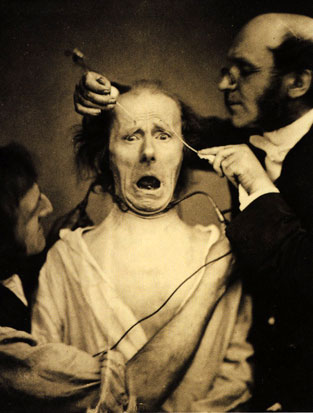HISTORY OF THE MADNESS IN THE CLASSICAL TIMES
Michel Foucault makes a detailed analysis of the true political, social, religious, economic and moral significance of the large boarding schools created in Paris and other parts of Europe in the mid-seventeenth century in his book "History of madness".
He demonstrates through various historical sources how to modify the old meaning of madness and make it synonymous with poverty, the inability to work and therefore "disorder" (justification used for the severe exclusion of a part of the population of the rest of society) was an idea of monarchical and bourgeois order, concerning social structures of the classical world as a whole, where misery had no place.
The miserable one was an effect of the disorder and therefore, an obstacle of order. The misery should not be alleviated but suppressed. Added to poverty as such, charity was also a disorder. But, if private initiative, through charity, helped to repress misery, then it would be inscribed in order, and the work would have a meaning. A date can serve as a guide: 1656, the year in which the foundation in Paris of the "Hopital Général" was decreed. All citizens of Paris must be at the service of the poor "of all sexes, places and ages, of any quality and birth, and in whatever state they are, valid or invalid, sick or convalescent, curable or incurable”.
At first glance, it was only a reform, or just an administrative reorganization, however, it was never clearly defined what was their status, or what sense had this neighborhood, which seemed to assign the same homeland to the poor, to the unemployed, to the correctional boys and the foolish, so that the miserable from one day to another, were excluded from society with greater severity than the lepers themselves. In these places, the poor lived in terrible conditions: naked or in the best of cases covered in rags, poorly fed, deprived of the air to breathe and water to quench their thirst. They were in narrow enclosures, dirty, infected and without light.
Of course, one fact is clear: the Hópital Général was not a medical establishment. It was rather a semi-juridical structure, a kind of administrative entity, which, along with the powers previously constituted and outside the courts, decided, judged and executed. It was a strange power that the king established between the police and justice, within the limits of the law: it was the third order of repression.
This structure, typical of the monarchical and bourgeois order, contemporary of absolutism, soon extended its network over all of France. An edict of the king, of June 16, 1676, prescribes the establishment of a General Hopital in each of the cities of the kingdom. Furthermore, not only in France did these centers exist, they were also in other countries such as Ireland, Germany and England.
The church was not alien to this movement. It reformed its hospital institutions and redistributed the assets of its foundations; it even created congregations that had purposes similar to those of the Hópital Général. It approved the great confinement prescribed by Louis XIV, separating the Christian world from poverty and thus contributing to this titanic task. In the words of the archbishop of Tours, the miserables were nothing more than "the dregs of the Republic, not so much for their bodily miseries, which should inspire compassion, but for the spiritual ones, which cause horror."
There were two great sectors among these men of scarce resources: those of the region of good, who were those of submissive poverty and in accordance with the order that was proposed to them; on the other side there were those from the region of evil, that is, those from the group of poverty not submitted to, who tried to escape from this order. The first accepted the internment and found in him his repose; the second rejected it, and consequently it deserved it.
The background of the creation of these institutions, was mixed by the old privileges of the Church in the assistance to the poor and in the rites of hospitality, and the bourgeois desire to bring order to the world of misery: the desire to help and the need to repress; the duty of charity and the desire to punish. The great houses of internment were at the end of this evolution: laicization of charity, without a doubt; but, obscurely, also moral punishment of misery. All an equivocal practice whose meaning was symbolized by those leprosariums, empty since the Renaissance. Classicism invented internment almost as the Middle Ages invented the segregation of lepers.
Michel Foucault provides a broad historical-social history of the events that occurred because of this great confinement, basing his thesis with various documents of the time and making use of a formal language. He sustains his writing with various readings and mentions historical events supported by study, research and intelligent reflection. In addition to this, he cites different writings such as Discours Touching Provision for the Poor, (which defines the meaning of misery quite well) and names events that have an important relationship with the subject of study, such as the Paris, Lyon and Ronces riots.
This is a brief summary of a book that without a doubt, every lover of history should read.
